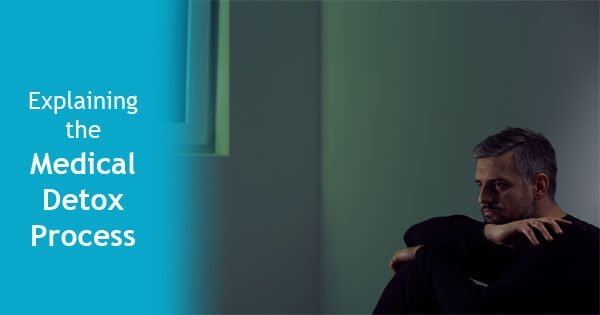Understanding Medical Detox: The First Step Toward Recovery
In 2015, an estimated 2 million Americans struggled with substance abuse disorders stemming from prescription opioid pain relievers, while an estimated 591,000 struggled with heroin use disorders. In just the last three years or so, opioid use and abuse has become even more prevalent in the United States. This growing epidemic has touched so many families in so many painful ways — but there is hope.
Substance abuse treatment programs have the power to change the lives of those struggling with addictions, as well as their families. Typically, one of the first steps of an addiction treatment program is detoxification. Although detoxification alone will not cure addiction, detox centers that provide these services play an important role in recovery. In today’s post, we’ll discuss some of the most common questions you may have pertaining to the process of detoxification and how this step plays into recovery as a whole.
What Is Medical Detox?
Detoxification refers to the process of removing all alcohol and/or drugs from a person’s body while managing the symptoms that often accompany withdrawal. Withdrawal symptoms (which can often be physically or mentally uncomfortable, painful, or even dangerous) occur when a person’s dependence on a certain drug goes unaddressed after a certain period of time. Detoxification will occur naturally if an addicted person abstains from their source of chemical dependence for long enough, but medical detox ensures that this process is safer and generally quicker. The length of medical detox can vary based on the substance, but it generally will last three to five days.
What Happens During the Detox Process?
There are three main parts of the detoxification process: evaluation, stabilization, and fostering treatment entry.
During the evaluation portion, medical staff members will screen an addicted individual to assess the substances in their system (e.g., alcohol, marijuana, amphetamines, benzodiazepines, cocaine, opiates, barbiturates, phencyclidine, etc.). In addition, a registered nurse will conduct an assessment (which includes testing the individual’s vital signs to ensure medical detox can be performed safely) and will review the individual’s health and substance abuse history. The individual will also receive a physical examination, a psychiatric evaluation, and mental and physical health disorder screenings. These evaluations work in-tandem to create a personalized treatment plan to aid this individual in eventual sobriety.
Stabilization refers to the actual detox itself, during which substances are removed from the individual’s body. Depending on the substance or individual in question, withdrawal symptoms can be severe. This is why an individual is closely monitored and examined during this process. An individual may also be given medications to ease the mental and physical symptoms they experience during this time.
Finally, fostering treatment entry refers to readying the individual to start their actual treatment program. During this portion of detox, an individual can meet with staff members to talk about exercise and nutrition. They’ll also participate in group and individual therapy sessions. The individual’s treatment plan is also explained, which includes a list of goals to accomplishments to graduate from the program.
What Are the Benefits of Medical Detox?
As briefly mentioned above, detox does happen naturally when an addicted person abstains from using their substance of choice. However, this process can be extremely dangerous in certain cases. Quitting a substance “cold turkey” can actually be life-threatening. Medical detox can ease serious withdrawal symptoms and make for a smoother transition into a treatment program. It can also reduce the risk of relapse, as compared to an addicted individual trying to detox on their own. In addition, the medical detox process can improve patient safety, as the staff at detox centers are on-hand should any issues arise.
After Detox, Will My Loved One Be Cured?
The treatment addicted individuals will receive at detox centers is only the first step to recovery. It’s a necessary step, to be sure, but detox alone will not cure your loved one. It is only after detox that the real healing can begin. To find out more about how our detox centers can help someone you love by getting them on the path to recovery, please get in touch with us today.

